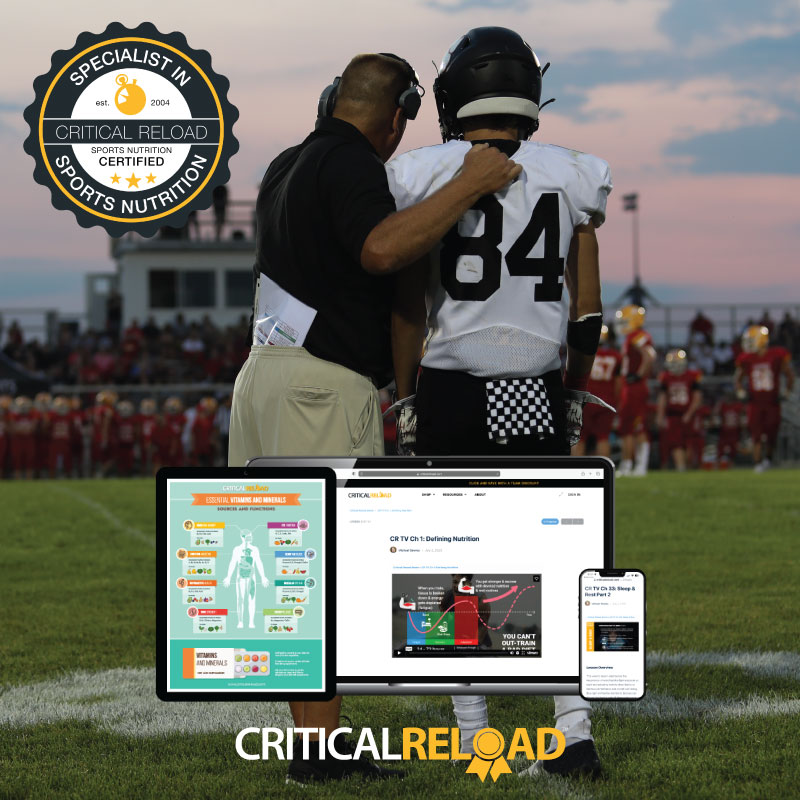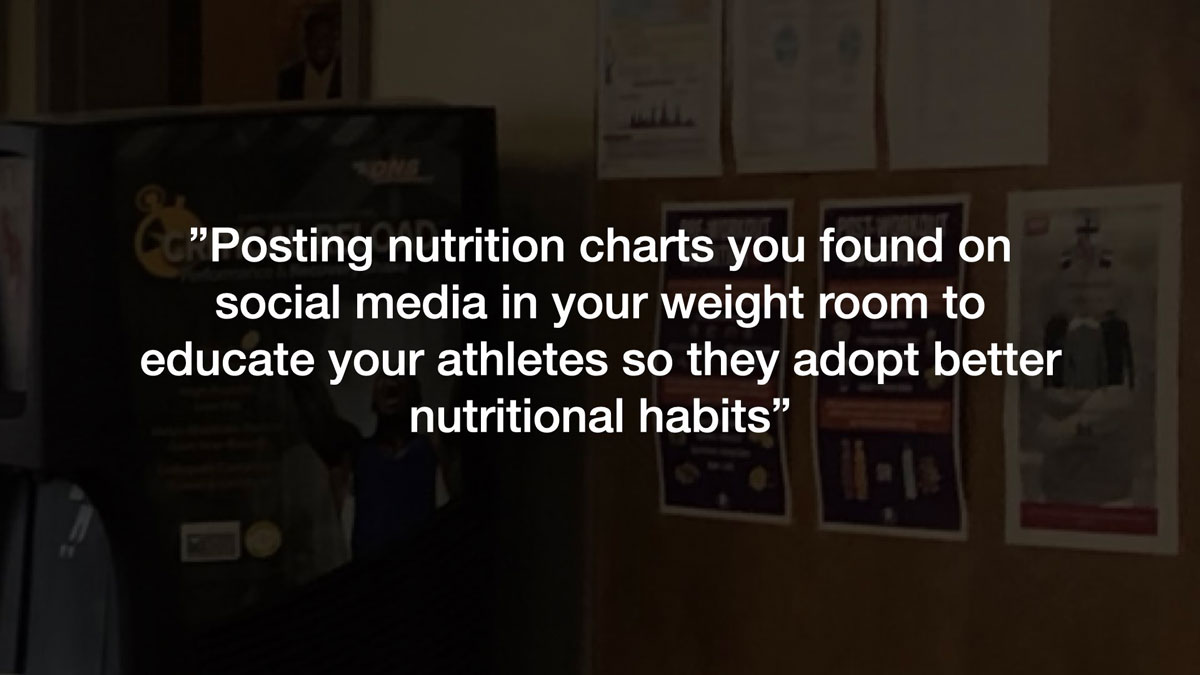Welcome to Part 3 of the Top 5 Coaching Mistakes Undermining Athlete Nutrition. You can catch up here if you missed Part 2, where we discussed how refining your nutritional approach, like your training programs, can significantly enhance your athletes’ performance and well-being.
Taking an RD’s or Health Coach’s Instagram posts, printing them, and posting them in your weight room as nutritional guidance for your athletes isn’t effective nutrition education. This approach is akin to taking someone else’s strength program or a ‘cool’ exercise you saw on YouTube and assigning it to your athletes without any customization or context.
Here’s why this method is flawed and how a more structured and personalized approach is necessary for effective nutrition education:
- Lack of Personalization: Just as strength training programs need to be tailored to the individual needs, goals, and capabilities of each athlete, nutrition plans must also be personalized. Instagram posts are generic by nature, designed to appeal to a broad audience. They do not account for the specific dietary needs, preferences, allergies, or performance goals of individual athletes. Using such posts as the basis for your athletes’ nutrition plans can lead to suboptimal or even harmful outcomes.
- Context and Depth: Instagram posts often provide snippets of information without the necessary context or depth needed for comprehensive understanding. Nutrition is a complex field that involves understanding macronutrients, micronutrients, hydration, timing, and individual metabolic responses. Effective nutrition education requires more than just surface-level tips; it involves a deep dive into how these elements interact and affect performance and health.
- Scientific Rigor: Nutrition advice on social media can vary greatly in its scientific accuracy and reliability. Registered Dietitians (RDs) and Health Coaches may share valuable information, but social media also has its fair share of unqualified individuals spreading misinformation. Without a critical eye, it’s easy to misinterpret or misuse the information. Proper nutrition education should be grounded in evidence-based science, ensuring that the guidance provided is accurate, safe, and effective.
- Interactive Learning: Nutrition education should be an interactive process, allowing athletes to ask questions, receive feedback, and understand the rationale behind dietary recommendations. Simply posting static information does not facilitate this kind of engagement. Interactive learning sessions, workshops, and personalized consultations are far more effective in ensuring athletes understand and can apply nutritional concepts.
- Holistic Integration: Nutrition education should be integrated into the overall training and wellness program. This means considering how dietary habits align with training schedules, recovery periods, and individual health conditions. A cohesive plan that ties together diet, exercise, and recovery strategies is crucial for optimizing performance. Isolated social media tips fail to provide this holistic view.
- Monitoring and Adjustment: Athletes’ nutritional needs can change over time due to various factors, such as changes in training intensity, competition schedules, and personal health. Effective nutrition education involves ongoing monitoring and adjustments to ensure that dietary plans align with current needs. Static posts cannot adapt to these changes.

By taking a more structured and personalized approach, such as what is offered through the Critical Reload Edge Specialist in Sports Nutrition Certification, coaches and trainers can provide athletes with the comprehensive, tailored, and scientifically sound nutrition education they need. This certification program equips professionals with the skills to:
- Develop personalized nutrition plans that cater to the specific needs and goals of each athlete.
- Integrate nutrition education seamlessly with training programs, ensuring a holistic approach to performance and wellness.
- Provide interactive and engaging learning experiences that encourage athletes to actively participate in their nutritional education.
- Utilize evidence-based practices to ensure all nutritional advice is grounded in the latest scientific research.
- Continuously monitor and adjust nutritional plans to stay aligned with the evolving needs of athletes.
In conclusion, while social media can offer valuable insights, it is not a substitute for comprehensive, personalized nutrition education. Coaches and trainers should invest in proper training and certification, such as the Critical Reload Edge Specialist in Sports Nutrition Certification, to ensure they provide the best possible guidance for their athletes. This approach will lead to better performance, improved health outcomes, and a more informed and empowered group of athletes.
Continue this series with Part 4, where we’ll expose how we often take a complex approach to athletes’ nutrition instead of starting with basic insights and building on those foundations. Be sure to catch it!
